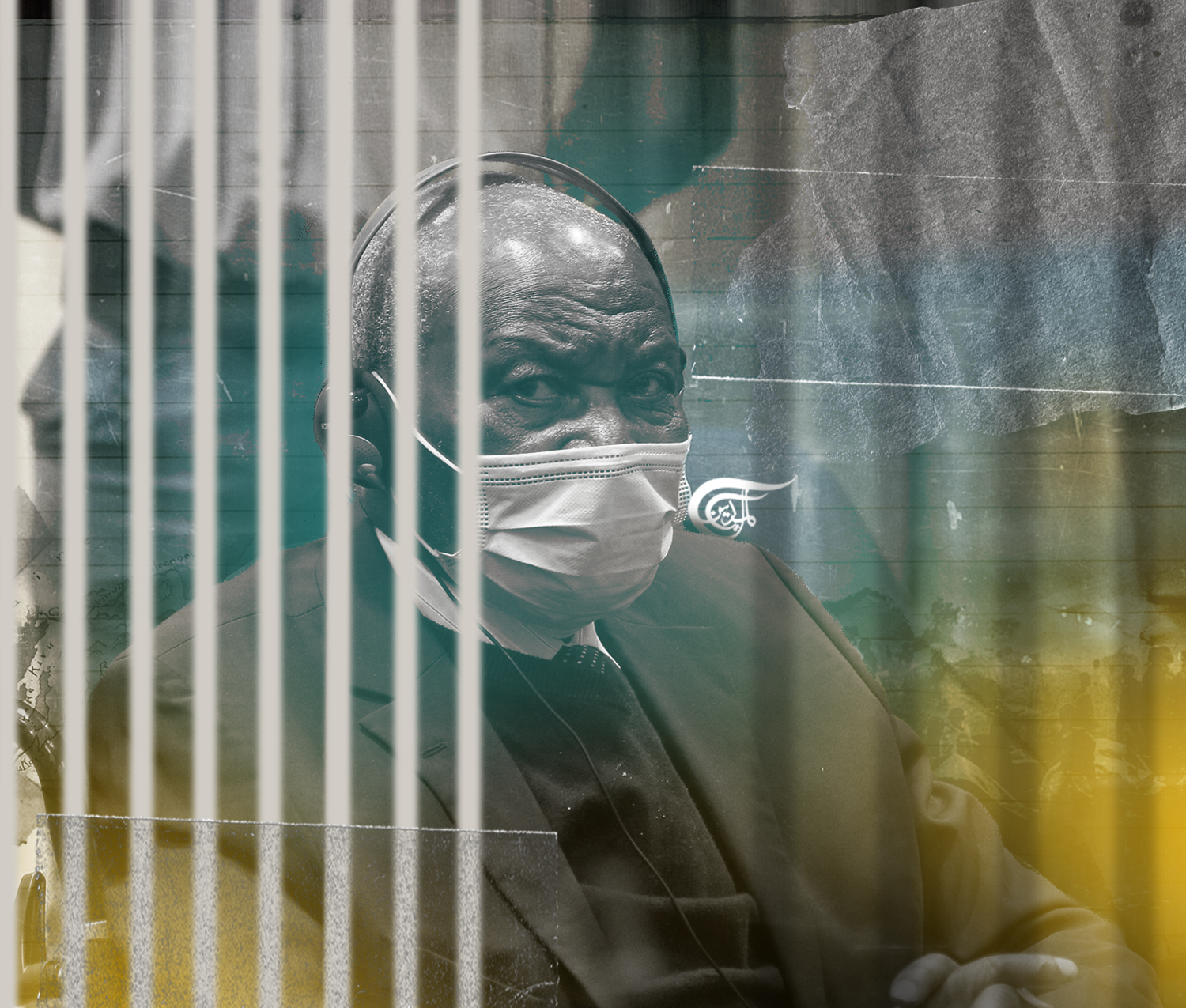The Extraordinary Story of the Case Against Félicien Kabuga
With only 3 months to his 89th birthday, the accused is still waiting for the trial to begin.
On 20 May 2020, French police arrested 87-year-old Rwandan businessman Félicien Kabuga in his flat on the outskirts of Paris to stand trial in The Hague for his role in the 1994 Rwandan genocide.
In the media, this man is already condemned for being "the financier of the genocide" and "the importer of machetes".
This is how information works: the big international media and agencies publish something and by that process of trickle-down, all the world's media, however far away from the subject they may be, however small they may be, reproduce the same "news", which is why it can be said that Félicien Kabuga is already condemned by the media all over the world. In the media-fed collective imaginary, his name will remain forever linked to the hoax of the "massive importation of machetes into Rwanda in preparation for the genocide against the Tutsis in 1994". But what is the truth of it all?
The unfinished work of the ICTR in Arusha
The International Criminal Tribunal for Rwanda (ICTR), established in Arusha, Tanzania, from 1994 to 2015, is supposed to deliver verdicts against persons responsible for committing genocide between January 1 and December 31, 1994, in Rwanda (except for the terrorist attack that shot down the presidential plane on April 6, the trigger of the genocide. The Prosecutor's Office has refused to prosecute it, despite having originally investigated it). At its inauguration it was claimed that it would not deliver victor's justice, but the reality is that it has only judged the vanquished and has refused to judge the victors, despite the fact that the prosecution had on its desk dossiers of serious crimes committed by the latter, the FPR that still today is in power of Rwanda.
In the 21 years of its existence, with a budget of billions and thousands of investigators, 96 people have been charged, 85 have been tried and 61 have been convicted. After the closure of the ICTR, the remaining cases went to trial and were settled by the International Residual Mechanism for Criminal Tribunals (IRMCT) in The Hague, headed by Belgian judge Serge Brammertz. It is here that Félicien Kabuga is being held pending trial.
The Belgian judge declared that proceedings would go quickly in this case given the age of the accused and his delicate state of health. But with only 3 months to his 89th birthday, the accused is still waiting for the trial to begin.
The charges against him have been amended several times. After 20 years of repeating that he is wanted for importing tons of machetes to commit genocide, earlier this year, and these charges disappeared. Many investigators have shown over the last 20 years that this imputation made no sense at all, so the Prosecution has definitively dropped it from the indictment and neither Rwanda nor anyone else has made the slightest comment.
The indictment was based on an investigation - rather hastily, it seems - in 1996, carried out by Pierre Galand and Michel Chossudovsky. They claimed that in 1993, imports of machetes by Félicien Kabuga's Import and Distribution Company had skyrocketed and that this was evidence of the planning of the genocide.
This research has been debunked by several experts. The first, Rwandan Augustin Ngirabatware, a doctor in economic sciences from the Swiss University of Fribourg and Minister of Planning in Rwanda from 1990 to 1994, has pointed out serious errors in the figures and facts of this research, which mixes military budgets with the budgets of the structural adjustment programs that were being carried out.
Also the French André Guichaoua, an expert on witnesses at the ICTR Prosecutor's Office (1996-2010) and other tribunals, and Roland Tissot, member of the Platform for Violence and the Exit from Violence of the Foundation Maison des Sciences de l'Homme, carried out research on the incriminatory investigation, and came to the conclusion that the report is incomplete, inaccurate and unreliable, their work can be consulted here.
The Hague prosecutors themselves have been able to establish that machete imports were normal throughout the region; that many businessmen and distributors imported them in the same period, not just Kabuga; that there was no disparity in imports in 1993 (this is believed to be a typographical error in the Galand-Chossudovsky report); and that in predominantly rural populations, whose main tool was this, there is nothing different in Rwanda from other countries in the region, before, during or after the genocide.
Remember this when the unfortunate Félicien dies while awaiting or during or just after his trial, and you see in all the world's headlines that "the financier and importer of machetes to commit genocide" has passed away.
Kabuga's other crime was being one of the 2,000 shareholders of the Radio Télévision Libre des Mille Collines, in 1994 he was the executive president of the corporation. In this interview, the granddaughter of the accused, Stacey Uwimana, makes a very enlightening comparison, "it is as if the BBC spreads a message of hate and the CEO of the corporation is put on trial for it”.
A very sad precedent
His case is reminiscent of that of Colonel Bagosora, Théoneste Bagosora, who died in a Malian prison at the age of 80, where he was serving a sentence for his role in the Rwandan genocide. When he died on 21 September 2021, the headlines in all the media were "The architect of the Rwandan genocide dies" (The Guardian, HRW, New York Times, AP), "the mastermind" (AFP), "the kingpin" (Reuters, El País, BBC), "the dubbed colonel of the apocalypse" (Washington Post), "conspirator", "instigator"... and so on.
But the reality is very different, the ICTR with its budget of billions and an army of investigators, who invested a lot of resources and efforts in searching for evidence to convict him of "conspiracy to commit genocide", did not find such evidence and had to declare him not guilty of those charges, on which his fame as "Key Mastermind" or "Architect" is based.
This other side of the story, the real one, as told by his lawyer, Canadian John Philpot, was hardly reported.
In this interview, his lawyer states that the Colonel was found guilty of ordering certain murders. This conviction was appealed by them and after the appeal trial, he was also found not guilty of these crimes. In the end, he was only convicted of "criminal negligence" as he was a senior official in the Ministry of Defense and should have known that his underlings were committing murders and should have prevented it. He was also not sentenced to life imprisonment but to 35 years, for that crime for which only this court has convicted someone, as it does not even exist.
In reality, his trial and its outcome, in the words of lawyer Philpot, "was a relative victory against the claim that the genocide was planned and organized by a senior military figure" of the then government. But the mainstream media do not care about all these incontestable truths. Let nothing spoil a good headline.

 Rosa Moro
Rosa Moro
 7 Min Read
7 Min Read












